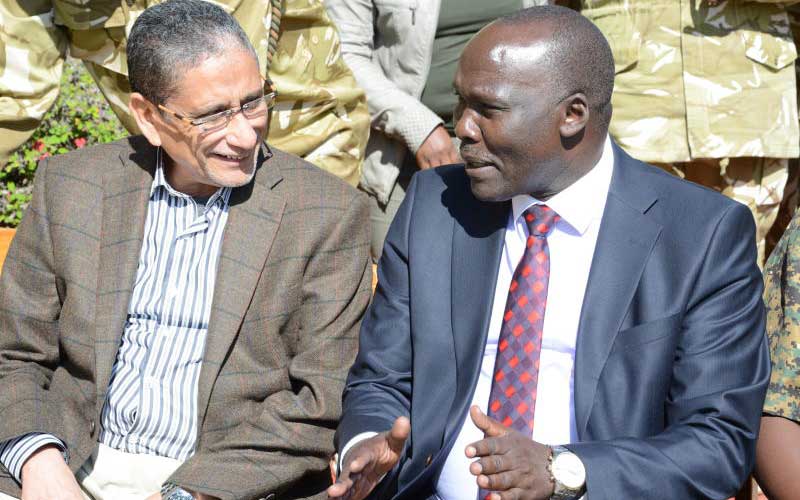×
The Standard e-Paper
Kenya’s Boldest Voice

Principal Secretary Fred Segor (right) with wildlife expert Ali Kaka during the induction workshop of wardens on Human wildlife conflict compensation claims processing. [Antony Gitonga]
Climate change that has led to increased land use is a major cause of human-wildlife conflicts, a State official has said.







